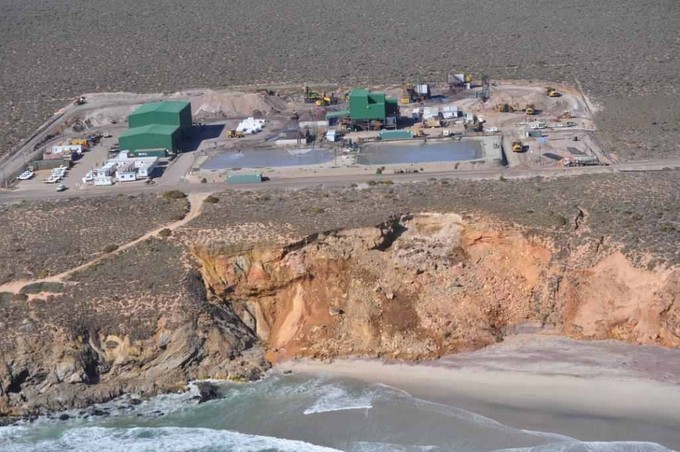Mining communities slam government’s “elite deal” with Chamber of Mines
Presidency promises they will be included in future negotiations on mining charter

Representatives of mining communities have attacked the government for what they say is “an elite deal” with the Chamber of Mines over the mining charter.
In a joint statement on 18 February, Mining Affected Communities United in Action (MACUA) and Women Affected by Mining United in Action (WAMUA) said the Office of the President and the Chamber of Mines had struck “a secret deal” to withdraw the mining charter published by the Department of Mineral Resources in June 2017.
MACUA and WAMUA and the Mining and Environmental Justice Community Network of South Africa (MEJCON-SA) had taken the government to court, arguing that the charter should be set aside because mining communities had not been consulted. They had joined the Chamber of Mines, which also opposed the charter in court.
The date of the hearing was set for Monday 19 February but over the weekend the Chamber of Mines and the Minister of Mineral Resources agreed to postpone the case so that the Office of the President could launch a new, inclusive consultation process on the charter.
But lawyers for the mining communities were not told until after the agreement had been reached.
“While we welcome the move by government to withdraw the charter in its current format, we are nonetheless affronted by the fact that government has once again done an elite deal with the Chamber without the courtesy of discussing or approaching the other applicants in the matter,” said WAMUA and MACUA..
“This reaffirms our contention that despite the flowery rhetoric to the media, mining affected communities remain an afterthought who are not even worthy of a phone call to either our leaders or our attorneys.”
However, lawyers for the communities welcomed the statement by the court that communities’ complaint about being excluded from the charter process should be taken seriously. The court recognised the community applicants for the purposes of consultation on the mining charter.
“This is a historic victory for mining affected communities, who now conclusively have a seat at the negotiation table,” said Wandisa Phama, attorney at the Centre for Applied Legal Studies.
Other applicants include the Sefikile and Lesethleng communities in the Northwest, and the Makola and Kgatlu communities in Limpopo represented by Lawyers for Human Rights.
“Our argument is very simple, we want orders from the court that mining affected communities should take part in the setting up of the mining charter,” said Elton Thobejane, deputy chairperson of MEJCON-SA.
MACUA National Co-ordinator Meshack Mbangula said: “It’s been almost five years trying to get recognition but we have been isolated as communities affected by mining.”
“We have marched and protested but nothing helped. We went to the courts,” said Mbangula.
Jomo Keromeng from Sefikile said the government and the mines made decisions for local communities.
“This is mining on our land. We should have a say,” said Keromeng.
In a statement on 19 February, the Presidency expressed regret for not having consulted the communities about the postponement. “The Presidency reaffirms its commitment to ensure that communities are integrally involved in consultations not only on the Mining Charter, but on all matters relating to the development of this sector,” said the statement.
Next: “I am not a pilchard, I refuse to live in a tin”
Previous: Elderly couple abandoned in mud house with grandchildren
© 2018 GroundUp. 
This article is licensed under a Creative Commons Attribution-NoDerivatives 4.0 International License.
You may republish this article, so long as you credit the authors and GroundUp, and do not change the text. Please include a link back to the original article.


